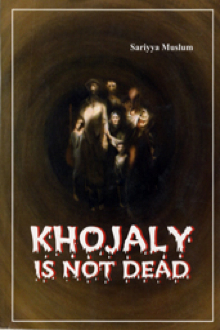
Khojaly is not Dead
| Müəllif | Muslum Sariyya |
|---|---|
| Nəşr olunduğu il | 2007 |
| Elm sahəsi | Tarix |
| Nəşriyyat | Chashioglu |
| Nəşr yeri | Baku |
Muslum Sariyya. Khojaly is not Dead. Baku, Chashioglu, 2007.
This book is about one of the tragedies of XX century. I don't want this book to be listed with million simple books. Because this book is the cry of Khojaly victims.
This book states that executors of this tragedy still go unpunished though 15 years passed since then.
This book is the equity and justice challenge of millions of Azerbaijanis who demand this tragedy to be recognized as genocide.
Don't look for scenes showing images of that tragedy. Accept this book as collection of memories of our nation. Grief, sorrow, sadness of this tragedy was written in our memory with blood.
This book presents part of our history written in blood.
We have never resounded to the world about our grief. As we are the nation who can bear its grief. Even this book is not the chronicle of all our tragedy. We wrote this book in order to declare world tragedy of all nations who witnessed horrors of the genocide in his our country.
We are obliged to repeat the reality once more: to kill man, to be his enemy is to be against the God. On 26 February 1992, Armenians not only became the enemy of humanity but he became the enemy of
human value and God as well. This numbers are written in the pages of Azerbaijan history with blood: Armenians attacked Khojaly town in the Daghlig-Garabagh region of Azerbaijan and killed 613 people. 63 of them were children, 106 of them were women and 70 were old people. 8 families were completely destroyed, 25 children lost both of their parents, 130 children lost only one of their parents, 657 men were disabled, and 1275 were captivated. Live of 150 captivated men is still unknown.
History has witnessed many bloody events. But to live horror of Khojaly tragedy where women, olds and children were savagely killed and to bear this is out of the human will.
Only we, Azerbaijanis could live that tragedy.
Because we are the nation who witnessed many tragedies and bore this.
This book is the chronicle of horror lived in the one night.
This book is for delivering tragedies of the yesterday tomorrow.